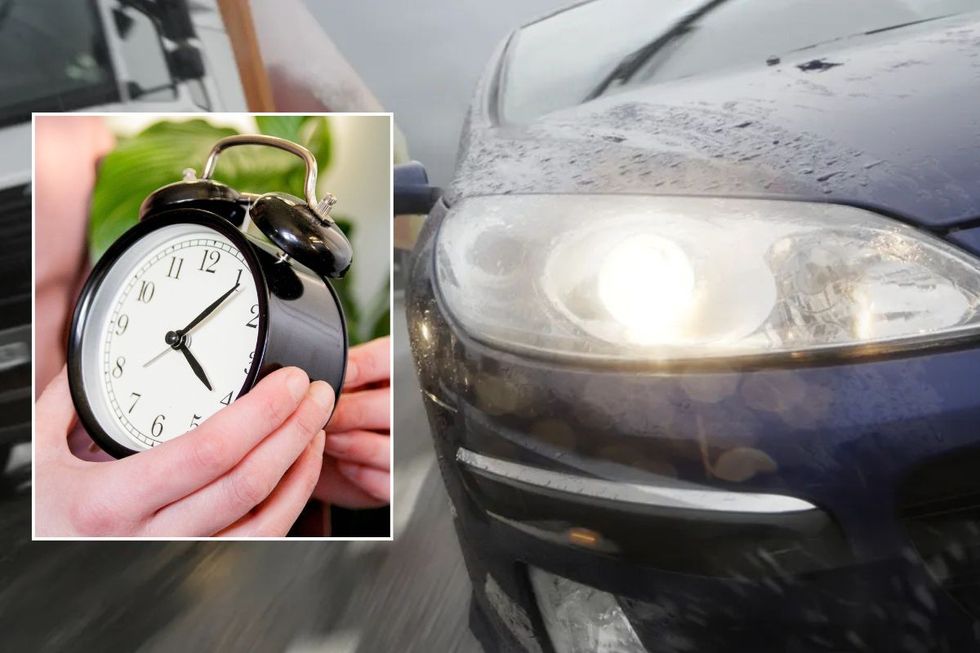Motorists warned of huge £1,000 fine for Highway Code headlight issues ahead of clock changes
'If you need to change the clock, park up, and don't risk being dangerously distracted'
Don't Miss
Most Read
Trending on GB News
Drivers are being urged to prepare for the clock change this Sunday, 30th March, or they could see themselves slapped with fines.
As the UK springs forward into British Summer Time, clocks will move forward by one hour, marking the official start of longer daylight hours.
However, with the summer solstice still months away in late June, many Britons will continue commuting in darker conditions.
While the shift brings welcome lighter evenings for commuters, motoring experts warn that proper headlight usage remains crucial during spring.
Do you have a story you'd like to share? Get in touch by emailingmotoring@gbnews.uk

Drivers are being urged to ensure they are prepared for the clocks changing this weekend
GETTY
Experts caution that the transition period can create dangerous situations on the road if drivers become complacent about visibility.
Modern cars with automatic headlights may also be affected, as winter dirt and salt buildup can make sensors unreliable.
Motorists are also being reminded that car clocks will need adjusting, but this should never be attempted while driving.
Alex Lee, a motoring expert at Dick Lovett, said: "It can be easy to leave work at the end of the day in the springtime and assume the light skies equal visibility on the roads. However, this isn't always the case."
Lee emphasises that proper headlight usage remains essential during spring despite the changing seasons since many drivers mistakenly believe that lighter evenings eliminate the need for headlights.
This misconception can lead to dangerous driving conditions, particularly during spring showers when visibility can rapidly deteriorate.
Even with modern vehicles featuring automatic headlight systems, drivers should manually check their settings before each journey.
Sensors can be compromised by winter residue and may not activate in certain conditions like heavy rain. The expert advises that when in doubt, it's always safer to use dipped headlights.
The Highway Code states that dipped headlights should be used when visibility is reduced or when drivers can see less than 100 metres ahead.
Lee warned: "Failure to turn on your headlights when you don't have this kind of visibility could land you with a £100 fine if caught by the police.
"If you're still unsure of when to turn your headlights on during the springtime, you can always put them on every time you get into your car."
This penalty can increase to £1,000 for repeat offenders who fail to address the issue. In more severe cases, police officers may charge drivers with dangerous driving, which carries a minimum 12-month driving ban.
LATEST DEVELOPMENTS:

The clocks will go forward one hour at 1am on the last Sunday in March
PAThe clock change also presents another hazard for motorists - the temptation to adjust their car's internal clock while driving.
Graham Conway, Managing Director at Select Car Leasing, strongly advises against this practice, saying: "Having your car's clock display the wrong time can be really irritating but we'd urge all UK motorists not to attempt to alter it while on the move.
"If you need to change the clock, park up, and don't risk being dangerously distracted."









